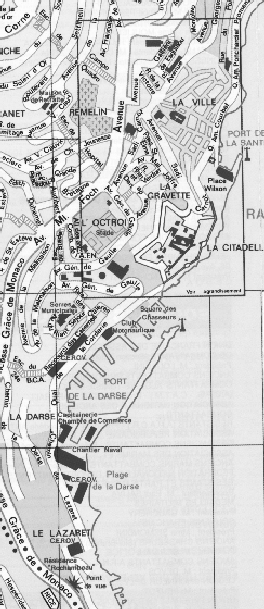Modelling Autotrophic Growth
Villefranche-sur-Mer, 24-26 March 2004
(v23/03/2004)
Background and objective
The general topic of this worshop will be the modelling of autotrophic growth, and will focus more specifically on photoacclimation in the surface mixed layer.
With the development of automation, controlled laboratory experiments now allow to mimic some essential features of the oceanic domain. In the context of phytoplankton growth in the mixed layer, different phenomena traditionally studied separately can be integrated: effects of light, nutrient, temperature, photoperiod, cell cycle. In the real world, these factors are not independent but constrained by physics, and photoacclimation needs to be studied in this context. Physicists can help to define the experimental protocols that could best reproduce the pertinent time scale variation of a given hydrodynamics situation (for example, a deep mixed layer). On the other hand, a better parametrisation of the C/Chla ratio is determinant for coupled physical-biochemical models.
During this colloquium, we will try to answer the following questions :
- What is the state-of-the-art on
phytoplankton photoacclimation ?
- What are the different approaches used to study photoacclimation
(physiological, biophysical, molecular, mathematical, automatism, ...) and
how can we reconcile or combine these approaches ?
- What are the actual physical constrains in the mixed layer (scales, ...)
?
- What are the new directions to follow in the study of photoacclimation ?
The goal of this meeting is to bring together scientists who have different approaches for modeling biochemistry: physiologists, molecular biologist, physicists, mathematicians, automaticians, experimentalists.
One outcome of this colloquium will be the design of new experiments.
Confirmed
participants
Antoine Sciandra, France (co-organizer)
Bernard Genty, France
David Suggett, UK
Emilie Lefloc'h, UK
Hugh MacIntyre, US
Jonathan Hess, France
Julia Uitz, France
Katharine Pemberton-Woods, Canada
Kevin Oxborough, UK
Laurent Memery, France
Lionel Pawlowski, France
Louis Prieur, France
Marcel Babin, France (co-organizer)
Marina Levy, France
Nikos Leonardos, UK
Olivier Bernard, France
Ondrej Prasil, Czeck Republic
Richard Geider, UK
Simon Bélanger, France
Yannick Huot, Canada
Hotel
An hotel room was reserved for each participant at the Hotel de la Darse, 32 Avenue du Général de Gaulle, 06230 Villefranche sur Mer. Tel: +33 (0)4 93 01 72 54, Fax: +33 (0)4 93 01 84 37. This hotel is located right at the entrance of the site of Observatoire Océanologique of Villefranche-sur-Mer, where the workshop will take place. Breakfast will be served at the hotel.
Lunch and dinner
There is a lot of cheap eating places located near the Station Zoolgique, where it is possible to have lunch relatively quickly. It is also possible to use the self service of the Station Zoologique located at the Darse (cheaper). For the dinners, there are restaurants in the old town of Villefranche, or in Nice.
Location
The workshop will take place at the "Galériens" building, in the Tregouboff lecture room. Here is a map of Villefranche (for details, please see http://www.obs-vlfr.fr and http://www.riviera.fr/vsmhome.htm or http://www.villefranche-sur-mer.org/pages/plan/planville.html) The Observatoire is at the bottom, right below the "Port de la Darse". This is a 20 minutes walk from the train station of Villefranche. There is no easy way to get to Villefranche from the Nice airport (15 km), so please take a taxi (about 50 Euro). This will be reimbursed with your flight.

Programme
The workshop will be devided in three themes, all of which will include a few short presentations (~30 min) and discussion periods. The first theme is on physiological processes of photosynthesis (Wednesday), the second on photoadaptation models and validation techniques (Thursdday) , the third on in-situ approaches (Friday) split in dynamical and photosynthesis studies. The meeting will be open for those researchers of the LOV which want to assist. The presentation of Richard Geider has been anounced to the LOV as an invited lecture.
Wednesday 2410h30-11h00 Coffee break 11h00-12h00 Marcel Babin Presentation of the participants, and organisation of the meeting Lunch 14h00-15h00 Hugh MacIntyre Proximate vs ultimate physiological regulation of photosynthetic rates 15h00-15h45 David Suggett Biophysical and optical determinations of light absorption by photosystem II in phytoplankton 15h45-16h30 Marcel Babin Diel variations of photosynthetic parameters in Prochlorococcus 16h30-16h45 Coffee break 16h45-17h30 Ondrej Prasil Photoacclimation and possible metabolic regulations under diel cycles 17h30-18h15 Antoine Sciandra Nitrate uptake in simulated deep mixed-layer. Interference with photosynthesis and cell division
Thursday 25
09h00-10h30 Discussion 10h30-11h00 Coffee break 11h00-12h30 Richard Geider Photoacclimation of pigment content Lunch 14h00-14h45 Olivier Bernard The chemostat: a suitable environment to design and validate physiological models both at steady state and in dynamical conditions 14h45-15h30 Lionel Pawlowski Modelling nitrogen- and light-limited growth of phytoplankton: qualitative study and steady-state validation of the BioLOV model 15h30-16h15 Yannick Huot Observing regulation and acclimation using fluorescence: a model 15h45-16h00 Coffee break 16h00-18h00 Discussion
Friday 26
09h00-09h45 Louis Prieur Mixed and mixing surface layers: Some observations and elements of scaling 09h45-10h30 Marina Levy A 4D-mesoscale map of the spring bloom in the POMME experiment (northeast Atlantic): results of a prognostic model 10h30-10h45 Coffee break 10h45-11h30 Kath. Pemberton The annual cycle of phytoplankton pigment composition, optical properties and photosynthetic quantum yield in the western English chanel 11h30-12h00 Julia Uitz From surface Chla to phytoplankton size classes: a first step towards size-specific primary production Lunch 14h00-17h00 Discussion
17h00 End of Workshop